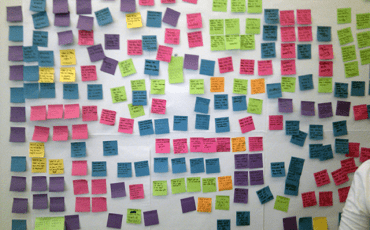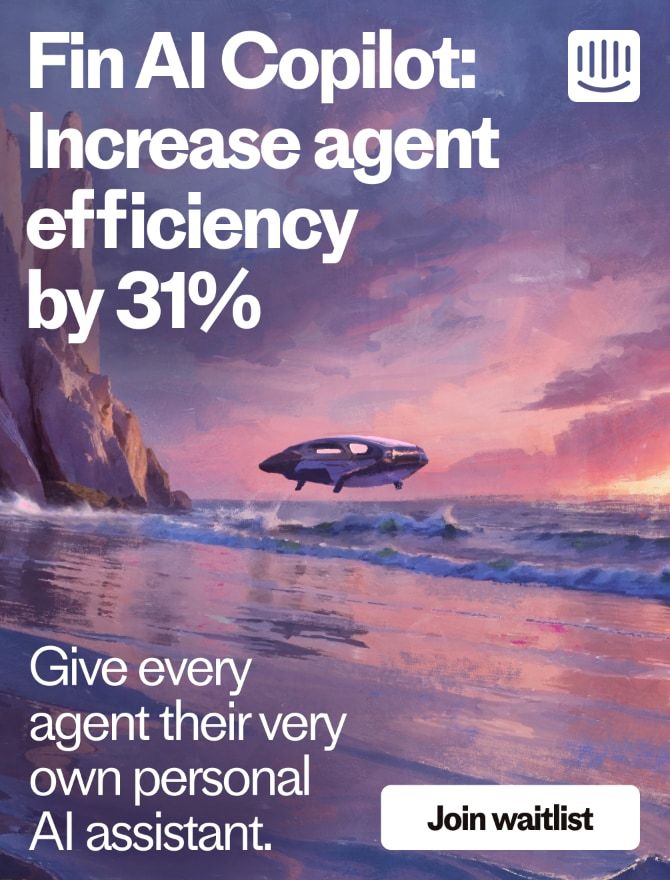Why I left Google to join Intercom

After a 7.5 year international adventure with Google, I’ve joined Intercom as Director of Research. So, what lured me away from the company frequently cited as the number one place to work in the world?
1. User Research is in Intercom’s DNA
At Intercom, everyone’s a researcher. We empower our customers to be researchers too. The platform we’re building enables Intercom’s product managers, for example, to ask people who’ve used a new feature for feedback directly. Likewise, Intercom’s customers can reach out to their own users any time. Intercom’s app let’s you see exactly who your users are and how they’re using the product. Many tech companies have surprisingly limited awareness of their users’ behaviour beyond a few dry usage metrics but this kind of constant exposure to your users’ behaviour makes research part of Intercom’s daily routine.
Intercom is also very focused on designing for the jobs that we have research evidence that people want to do, rather than designing features we’re not sure if people need or want. This focus on JTBD (Jobs To Be Done) came from Intercom’s founders. I spent two days last week holed up in a research workshop with CEO Eoghan McCabe, our VP of Product Paul Adams (previously a User Researcher at Google himself) and co-founder Des Traynor, analysing these jobs. I don’t think there’s a better way to persuade a user researcher that a company understands the value of research and of focusing on the user.
2. Enterprise apps are the next frontier for UX
Enterprise apps that are emerging today, like Intercom, offer exciting opportunities for UX designers and researchers to transform the lives of people who use them. This is a space where UX improvements are sorely needed. So little care and attention has been channelled into the user experience of enterprise apps historically. They are too often the tools of frustration and despair, with interfaces only a mother could love.
“10 years ago, all that was required for an enterprise app was a basic interface. Many of these apps (they weren’t called apps) used featureless, default UI/UX provided by Microsoft Visual Basic, or worse.” Reuven Cohen, Forbes
Microsoft found that office workers spend on average of six hours a day conducting work on a computer, five days a week. This equates to around 125 hours a month of being required to use apps the worker typically has little or no choice in selecting. Meanwhile, US adults who own Android or iPhones spend around 30 hours a month using mobile apps. Peoples’ experiences of mobile apps they’ve chosen to use outside of work are influencing their expectations of apps they’re required to use at work. To quote an ex-colleague now at Facebook;
“It’s also the norms which are starting to change. People who are now accustomed to the high quality of successful mobile applications are now transferring those expectations to other areas of software.” – Margaret Stewart
3. Researching the future is fun
It’s exciting to be a researcher in uncharted territory that’s evolving rapidly. When I started at Google back in early 2007, the iPhone hadn’t been born. Android was a top secret project. User research was used to observe if people could use the new smartphones that emerged and what they wanted to use them for in those early days.
A kind of shuffling dance of courtship emerged. The consumers tried stuff out, the content providers and app developers watched. Everybody experimented and iterated. Initial consumer behaviour was not a reflection of the later patterns that would emerge. For example, the Google search queries we saw on mobile were different to the queries on desktop. This was attributable in part to device differences and the mobile context of use but also due to the differences in content that was being served and the mobile UI. As Google evolved the content and UI of its mobile search product, so in turn the behavior of the mobile search users changed. When products and people are rapidly shaping one another, the researcher is constantly challenged to decipher what users really want and need from a product. It’s challenging figuring out where things are going in future but that also makes it fun.
Business and customer communication is in a similar place today as in those early days of mobile search at Google. The invention of the Internet has turned traditional marketing upside down and people are still trying to figure out what it all means. Working at Intercom is a chance to shape the future of this communication between businesses and their customers.
4. An existential crisis
When you leave a design job at a tech company, you leave empty handed; all your work is left behind on servers you can no longer access. When you work with pixels, your work always seems rather ephemeral, intangible. Yet you’ve spent your life making things every day, helping to design and build complex products. It’s a strange thing, to dedicate yourself to building things out of empty space and points of light.
Similarly, when I left Google a few weeks ago, I had to wave goodbye to 7.5 years of work, including fascinating projects researching the redesign of Google Maps and creation of Material Design (Google’s new visual language announced at I/0 in May). And somehow, the pain felt sharper than if I was a designer. As a researcher, your insights are often about products that no longer exist or about people who are constantly evolving and may now behave differently. Great user researchers strive to pinpoint insights about human behaviour that have longevity but the majority of UX research insights are time sensitive.
It all leads to an existential question. At the end of a digital career, what do you have left? I think it boils down to experiences, stories, friends and a few copies of the things you helped create along the way. If you’re lucky, products and companies that live on, rooted in foundations that your ideas fertilised. There’s nothing like this epiphany to make you seek out an opportunity to be much more directly involved in the creation of a company and its products. To be one of a small team of employees compared to Google’s 52,069 voices. That’s why I’m so excited to have joined Intercom.







